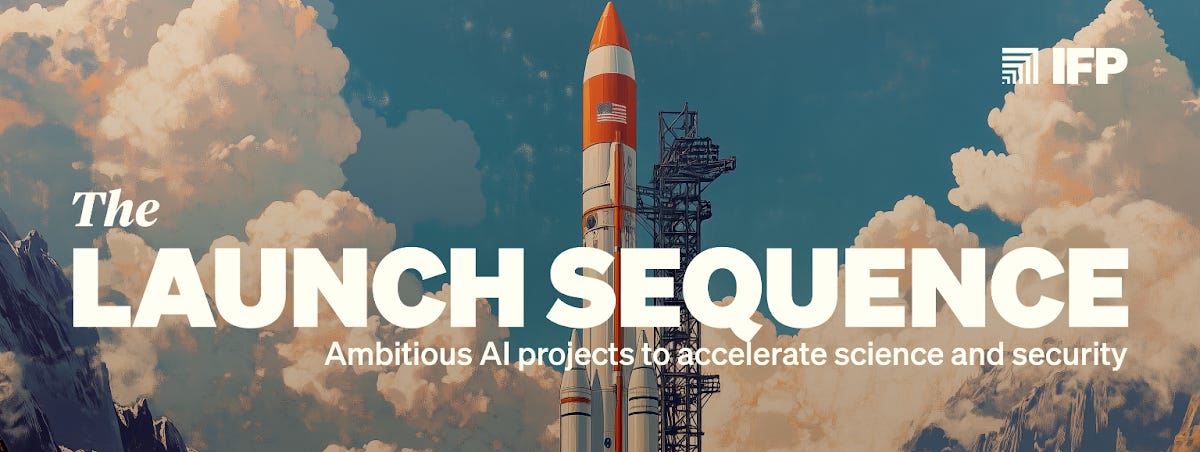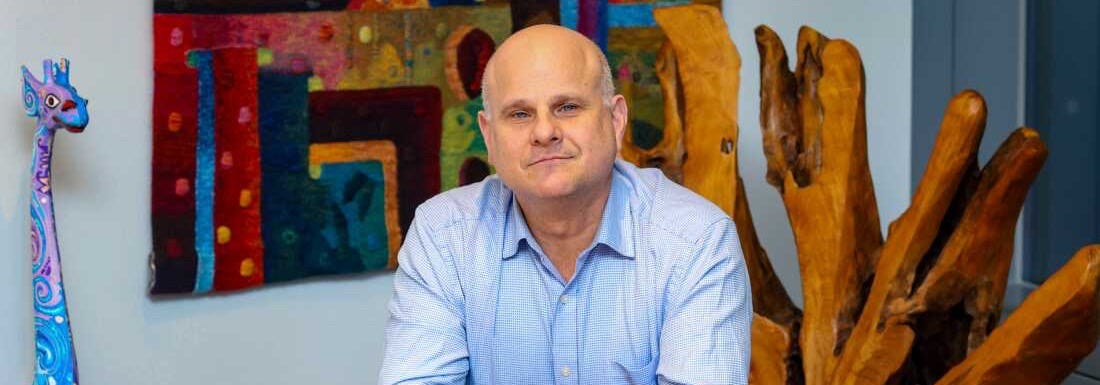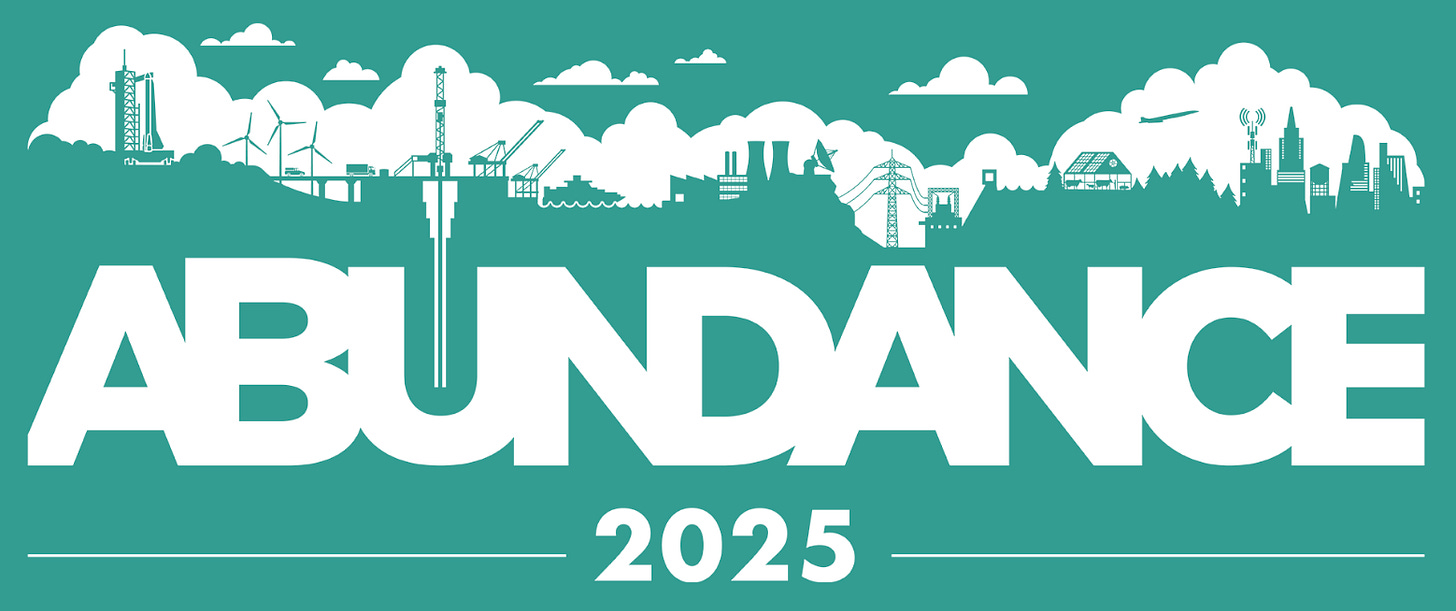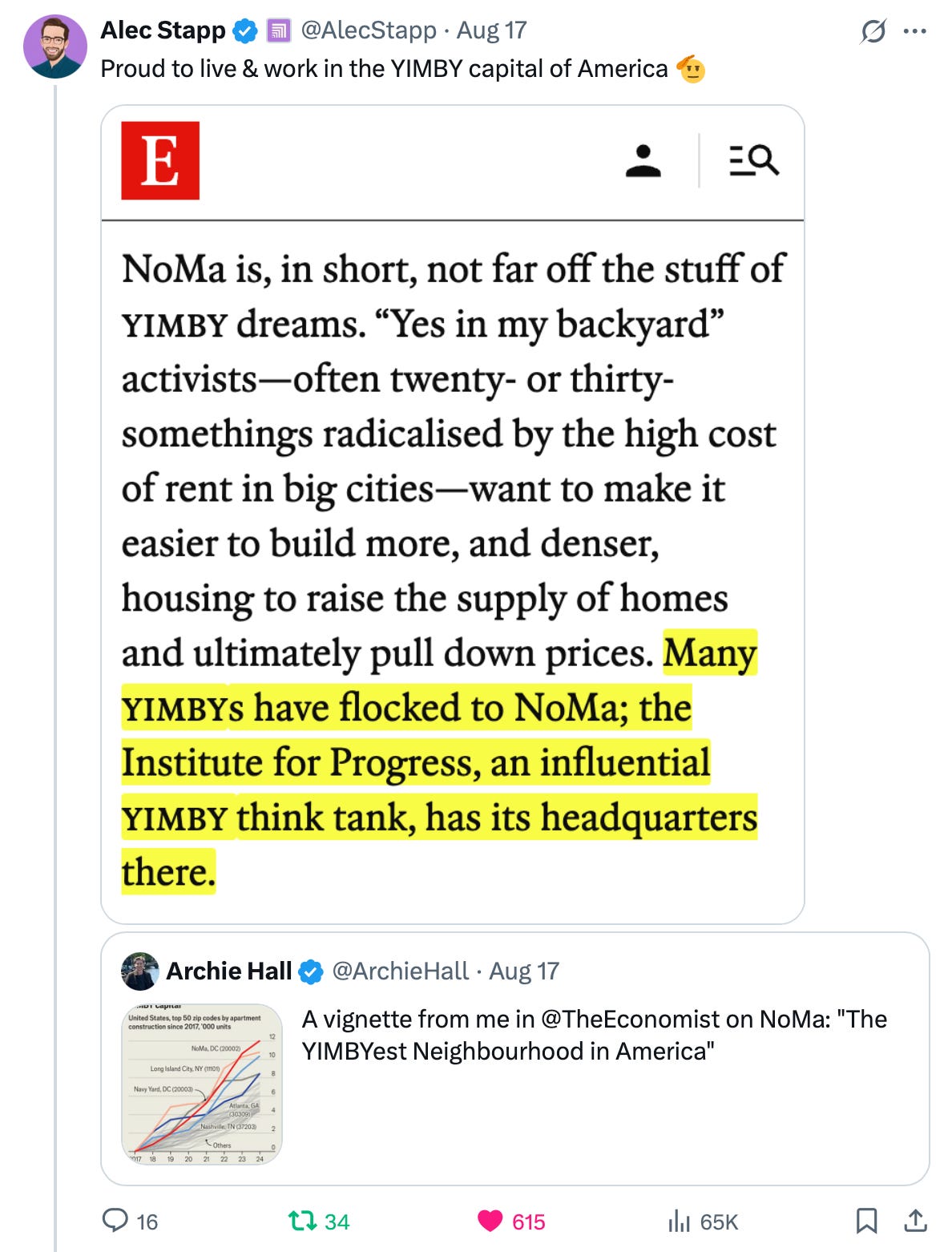IFP Update: August 2025
Our biggest project this past month was The Launch Sequence. It’s a collection of 16 essays describing concrete but ambitious projects that use AI to accelerate scientific breakthroughs, and to accelerate the development of defensive technologies to increase societal resilience in the face of intelligence too cheap to meter.
AI advances over the next few years could catalyze a new golden age of discovery and abundance. The private market will deliver amazing consumer products, but it’s up to US policymakers to make sure public goods don’t get neglected.
Check out all the essays in the series below, and then read on for the rest of our regular updates.
Preparing for Launch by Tim Fist, Tao Burga, and Tim Hwang: An introduction to the series on why shaping AI progress matters, and how to go about it.
The Replication Engine by Abel Brodeur and Bruno Barbarioli: How to build automated replication infrastructure for better, faster science.
Mapping the Brain for Alignment by Adam Marblestone and Andrew Payne: How to map the mammalian brain’s connectome to solve fundamental problems in neuroscience, psychology, and AI robustness.
Teaching AI How Science Actually Works by Ben Reinhardt: How block-grant labs can generate the real-world data AI needs to do science.
Benchmarking for Breakthroughs by Séb Krier and Zhengdong Wang: How to incentivize AI for national priorities through a strategic challenge and evaluations program.
A Million-Peptide Database to Defeat Antibiotic Resistance by Maxwell Tabarrok: How to build a large peptides database to train the AlphaFold for new antibiotics.
Biotech’s Lost Archive by Ruxandra Teslo: How to fuel AI by unlocking the FDA’s knowledge of biotech failures.
Using X-Labs to Unleash AI-Driven Scientific Breakthroughs by Caleb Watney: How to adapt our science funding mechanisms to the unique infrastructure needs of large-scale AI projects.
Scaling Materials Discovery with Self-Driving Labs by Charles Yang: How to close the gap between AI-guided material design and real-world validation.
Faster AI Diffusion Through Hardware-Based Verification by Nora Ammann and David “davidad” Dalrymple: How to use privacy-preserving verification in the AI hardware stack to build trust and limit misuse.
The Great Refactor by Herbie Bradley and Girish Sastry: How to secure critical open-source code against memory safety exploits by automating code hardening at scale.
Operation Patchlight by Miles Brundage: How to leverage advanced AI to give defenders an asymmetric advantage in cybersecurity.
Scaling Pathogen Detection with Metagenomics by Simon Grimm: How to generate the data necessary to reliably detect new pathogen outbreaks with AI.
Preventing AI Sleeper Agents by Evan Miyazono: How to ensure American AI models are robust and reliable via a DOD-led red- and blue-teaming effort.
A Sprint Toward Security Level 5 by Sella Nevo: How to protect American AI from nation-state level threats.
The Infinity Project by Patrick Shafto: How to use AI and mathematics to prove and improve science and security.
We’re also incubating The Great Refactor as a focused research project at IFP (and will eventually spin it out). Check out the project website here.
🏛️ Statecraft by Santi Ruiz
How to Fix Foreign Aid. Santi interviews Dean Karlan, who spent two and a half years at the helm of the first-ever Office of the Chief Economist at USAID. In that role, he tried to help USAID get better value from its foreign aid spending, shifting $1.7 billion of spending towards programs with stronger evidence of effectiveness.
How to Be a Good Intelligence Analyst. Santi interviews anthropologist and intelligence community veteran Dr. Rob Johnston. He’s the author of the cult classic Analytic Culture in the US Intelligence Community, a book so influential that it's required reading at DARPA.
Order of Operations in a Regime Change. In a change of pace, Santi reviews Collapse: The Fall of the Soviet Union by Vladislav Zubok. The big thesis of the book is that the collapse of the USSR wasn’t inevitable — had Gorbachev made better decisions, he could have liberalized while keeping the Union together. Santi sees parallels for would-be reformers today.
Four Ways to Fix Government HR. Santi interviews Judge Glock, Director of Research at the Manhattan Institute, about civil service reform and how to build a better talent pool in the federal government.
🏗️ Construction Physics by Brian Potter
Where Are Vacation Homes Located in the US? Second homes cause a lot of consternation in the housing crisis debate. But how many actually are there in the US? And where are they? Brian found a comprehensive dataset to answer those questions and more.
Group Technology, the Forgotten Cousin of Lean Manufacturing. One lesser-known industrial improvement system that appeared and then receded in the second half of the 20th century is Group Technology. It’s interesting to try to understand what made it seem compelling, and why it ultimately lost favor.
My Book "The Origins of Efficiency" is Now Available for Preorder. Brian wrote a book! The Origins of Efficiency is now (officially) available for preorder, and will be released on September 23rd.
How Does the US Use Water? Last year, Brian wrote a “cheat sheet” for building better intuitions about energy systems. Now he’s done it again, but this time for water systems. Everything you need to know (and a lot you probably don’t).
⚡ Right of Way by Pavan Venkatakrishnan and Thomas Hochman
We launched a new podcast with our friends at FAI! It’s called Right of Way, and it’s hosted by Pavan Venkatakrishnan and Thomas Hochman. Check out the first two episodes below:
Ep. 1: Energy Policy Whiplash. Pavan and Thomas sit down with Liam Donovan and Yogin Kothari to talk about the aftermath of the One Big Beautiful Bill, foreign entity of concern requirements, the breakdown in advocacy and political miscalculations, and the path forward for permitting reform.
Ep. 2: The Permitting Picture. Pavan and Thomas talk with Richard Meyer and Peter Stahley about how NEPA works (or doesn’t) and how reform efforts have shaped outcomes, the role of the Clean Water Act in stalling major projects, and the politics and political tradeoffs in permitting reform.
📅 Events
We’re excited to co-host the Abundance 2025 conference in DC, which is now only a week away. Demand was off the charts, and tickets are sold out. We look forward to seeing many of you there!
Arnab Datta will be participating in an R Street Institute event on the future of permitting reform on September 9th. Sign up to watch here.
📰 Media
David Wallace-Wells mentioned our Launch Sequence series in a piece for The New York Times speculating on the future path of AI development.
“In a bundle of proposals for science and security it called “The Launch Sequence,” the think tank Institute for Progress recently outlined areas of potential rapid progress: improving surveillance systems for outbreaks of new pandemic pathogens, sifting through the Food and Drug Administration’s archive to highlight promising new pathways for research, using AlphaFold to develop new antibiotics for an antibiotic-resistant world and solving or at least addressing the scientific world’s replication crisis by stress-testing published claims with machine modeling.”





